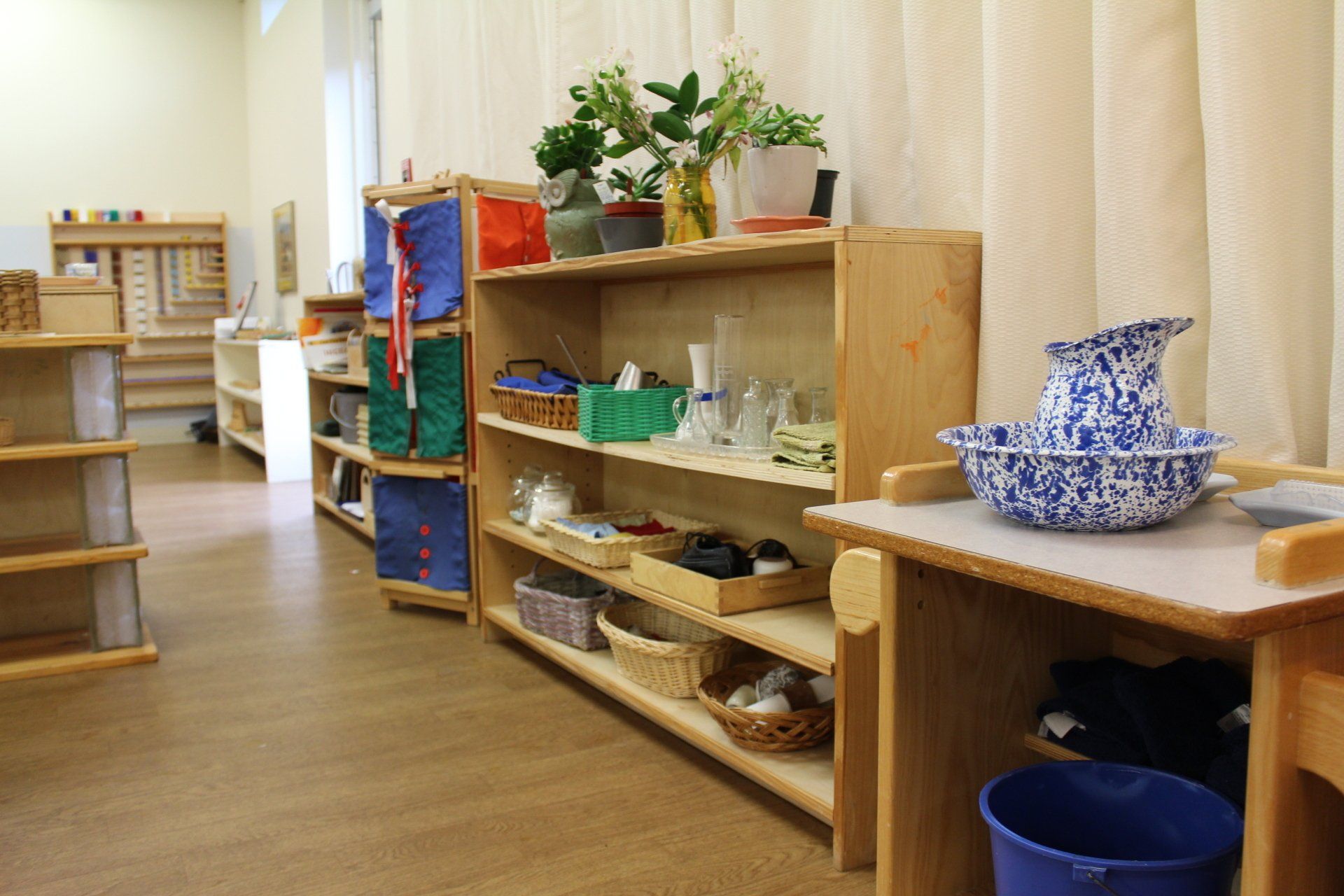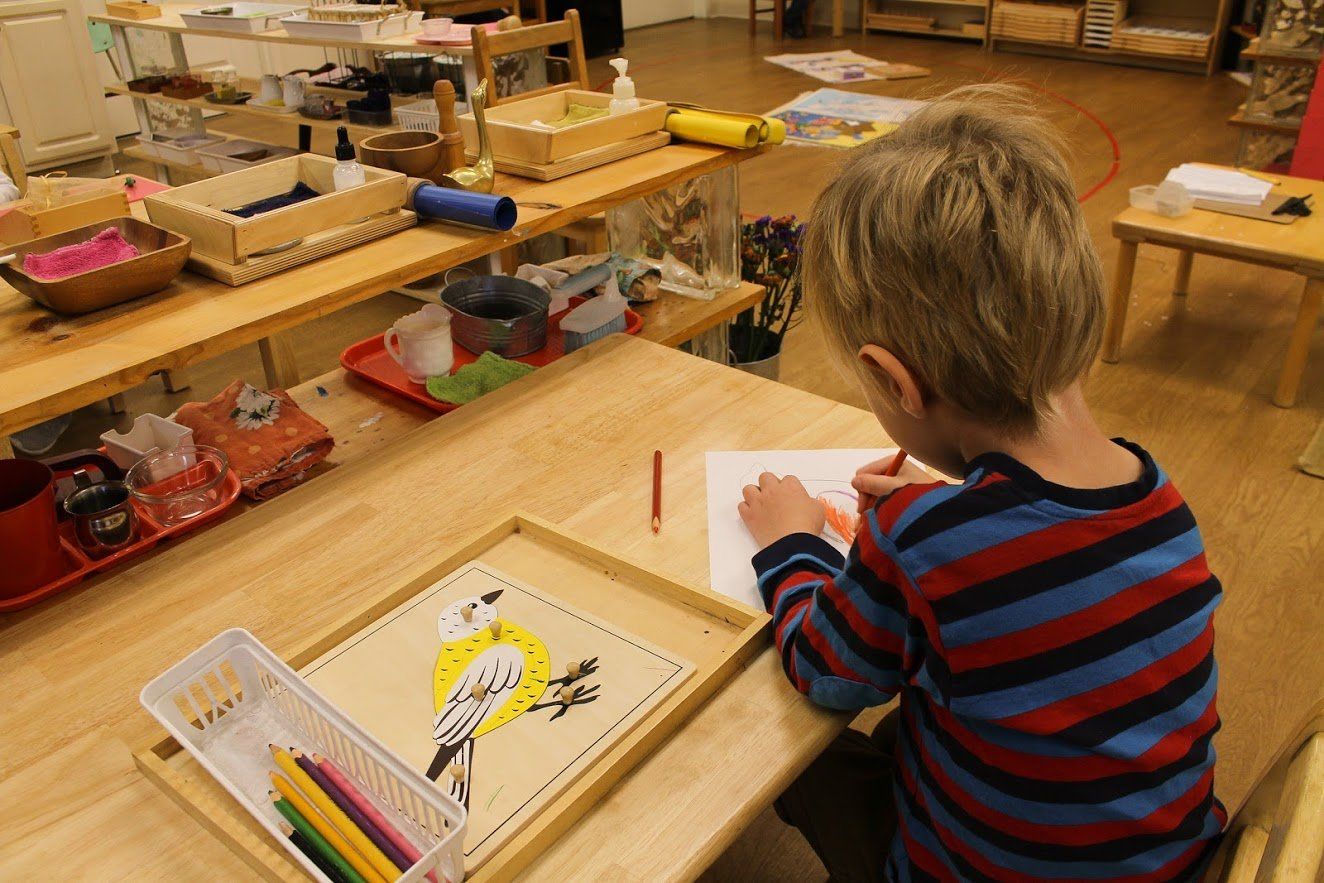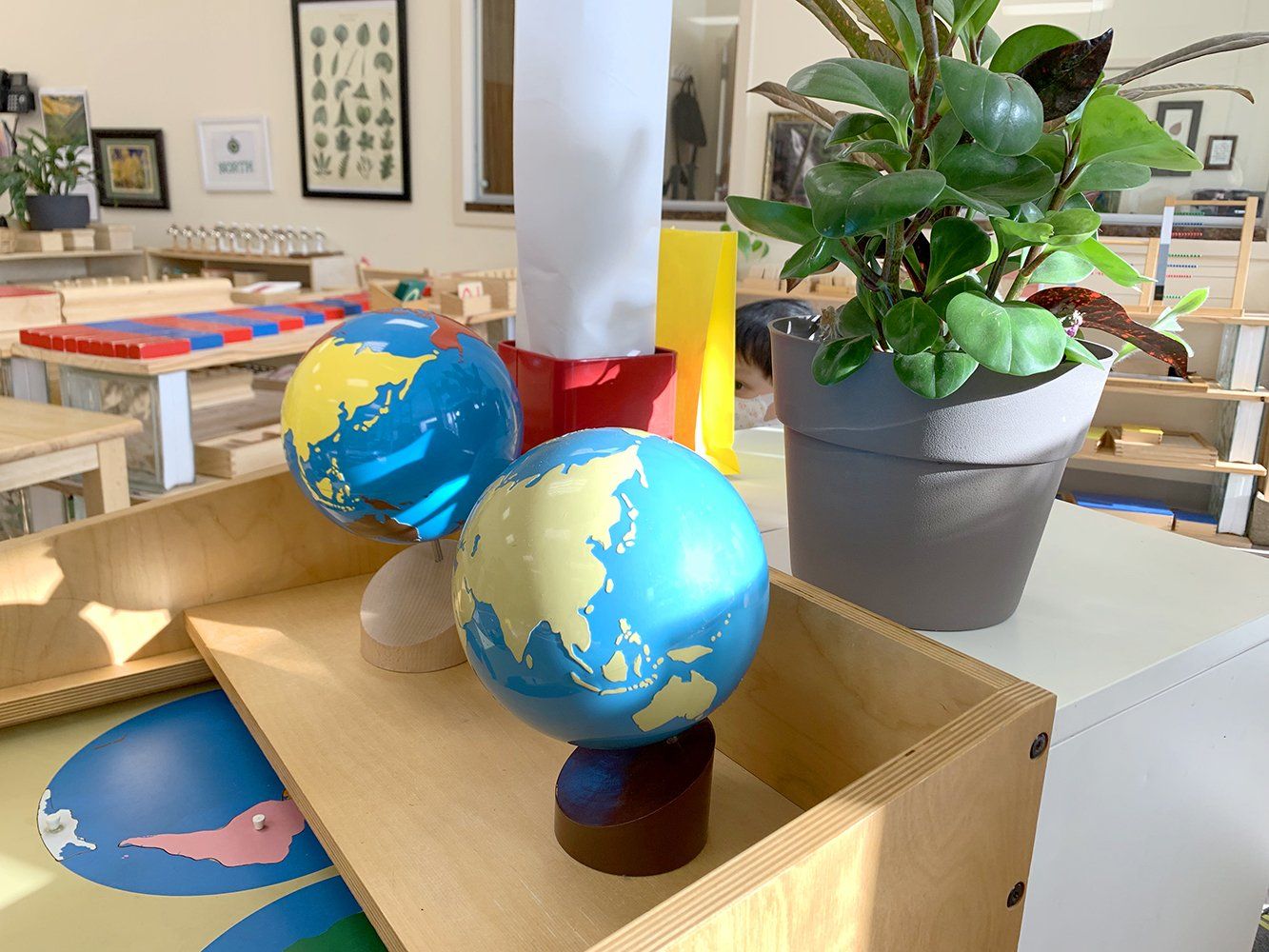Early Childhood
3-6 years
MSL’s Early Childhood environments are led by one lead Montessori-certified teacher and a trained assistant. These classrooms support children ages 3 to 6 years old.
Students enjoy a morning work cycle of approximately 2.5 to 3 hours followed by a community circle time, outdoor classroom time, and a lunch period. During the morning work cycle, students work independently or in small groups in the curriculum areas of Practical Life, Sensorial, Language, Mathematics and Cultural Studies (Geography, History, Zoology, Botany, Science, and Spirituality).
Students are welcome to order lunches from our outside caterers each day or bring their lunches from home. Nutritious snacks and milk are provided daily.
Monday - Friday (5 days/week)
Full Day: 8:00 AM - 2:45 PM
Half Day (option not available for Kindergarten age):
8:00 AM - 12:15 PM
Overview of Program
The Early Childhood program provides students:
- lessons designed to build their self-confidence by allowing them to be successful at a task;
- freedom to direct their own learning in the classroom, with expectations and an un understanding of responsibilities.
- an environment that nurtures their critical thinking abilities and gives a vision of the world and universe around them.
Curriculum Overview
Grace and courtesy are encouraged and consistently reintroduced to the children. These lessons include: how to interrupt, what level their voice should be, the steps of a work cycle, how to push in a chair, how to roll a mat, how to welcome a visitor, how to solve conflicts, how to sit on line, and how to greet others. Grace and courtesy is essential to ensuring a smooth work cycle and sets the framework of a successful working Montessori classroom.
Practical life prepares the child for life. It is the foundation of the Montessori environment and nurtures the needs of the early childhood student. The four main goals in practical life activities: order, concentration, coordination, and independence.
Children learn through their senses. The sensorial materials train and sharpen the senses of the child and bring awareness to learning in other areas. Through practice with the sensorial materials, children learn to discriminate between sizes, shapes, colors, textures, smells with language woven throughout the sensorial lessons. Language activities build self-confidence by expanding the child’s vocabulary and ability to communicate thoughts more precisely.
Montessori philosophy indicates that our ability to understand math can be sourced to our innate intelligence and the quality of the environment in which we are placed. Montessori practice begins with concrete experiences that will intrinsically lead to abstraction when the child is ready.
Geography, history and science are interrelated ideas and materials. The lessons are introduced with a leading question, then the child works with the materials and draws his/her own conclusions/inferences. The purpose of this work is to provide the children the opportunity to understand their own relationship to the planet.
“What a great place... full of great minds and very nice people.”
Claudia McClure
“Spent the morning being a Montessori parent for the Toddler Classroom with Ms. Kathy...can't say enough good things about Montessori School of Louisville!!!"
Mikelle Bruzina
“The culture at MSL has been very good for our almost 2 year old. For the first time I do not worry about his well-being when he is away from home. We are so happy that we found MSL!"
Ashley Gibbons
Programs
Connect
Parents
Phone: (502) 640-8585
Email: office@msl-edu.org
10263 Champion Farms Dr.
Louisville, Kentucky 40241 USA
Student Records Request
Please email Rachel Flavell
office@msl-edu.org
Montessori School of Louisville
Montessori School of Louisville











